Censorship Industrial Complex
Trudeau government ‘gaslighting’ critics of Online Harms Act, legal expert warns

From LifeSiteNews
Dr. Michael Geist pointed out that Bill C-63 gives a digital safety commission an astonishing array of powers with limited oversight.
One of Canada’s top legal pundits warned that the federal government of Prime Minister Justin Trudeau is “ready” to “gaslight” opponents of a new bill that could lead to jail time for vaguely defined online “hate speech” infractions.
In recent an opinion piece critical of Bill C-63, which is the Online Harms Act that was introduced in the House of Commons on February 26, law professor Dr. Michael Geist said that the text of the bill is “unmistakable” in how it will affect Canadians’ online freedoms.
Geist noted that the new bill will allow a new digital safety commission to conduct “secret commission hearings” against those found to have violated the new law.
“The poorly conceived Digital Safety Commission lacks even basic rules of evidence, can conduct secret hearings, and has been granted an astonishing array of powers with limited oversight. This isn’t a fabrication,” Geist wrote.
He observed specifically how Section 87 of the bill “literally” says “the Commission is not bound by any legal or technical rules of evidence.”
The Liberals under Trudeau claim Bill C-63 will target certain cases of internet content removal, notably those involving child sexual abuse and pornography.
The reality is that the federal government under Trudeau has gone all in on radical transgender ideology, including the so-called “transitioning” of minors, while at the same time introducing laws that on the surface appear to be about helping children.
As for Geist, he noted that when it comes to Bill C-63, the “most obvious solution” to amend the bill “is to cut out the Criminal Code and Human Rights Act provisions, which have nothing to do with establishing Internet platform liability for online harms.”
“Instead, the government seems ready yet again to gaslight its critics and claim that they have it all wrong,” Geist said. “But the text of the law is unmistakable and the initial refusal to address the concerns is a mistake that, if it persists, risks sinking the entire bill.”
Bill C-63 was introduced by Justice Minister Arif Virani and then immediately blasted by constitutional experts as troublesome.
Bill C-63 will modify existing laws, amending the Criminal Code as well as the Canadian Human Rights Act, in what the Liberals claim will target certain cases of internet content removal, notably those involving child sexual abuse and pornography.
One of Canada’s foremost constitutional rights groups, the Justice Centre for Constitutional Freedoms (JCCF), warned that the proposed “Online Harms Act” is a serious threat to freedom of “expression” and could lead to “preemptive punishment for crimes not committed.”
Geist observed that the Trudeau government with Bill C-63 “is ready to run back the same playbook of gaslighting and denials that plagued” as it did with its other internet censorship Bills C-11 and C-18.
“Those bills, which addressed Internet streaming and news, faced widespread criticism over potential regulation of user content and the prospect of blocked news links on major Internet platforms. Rather than engage in a policy process that took the criticism seriously, the government ignored digital creators (including disrespecting indigenous creators) and dismissed the risks of Bill C-18 as a bluff,” Geist wrote.
“The results of that strategy are well-known: Bill C-11 required a policy direction fix and is mired in a years-long regulatory process at the CRTC and news links have been blocked for months on Meta as the list of Canadian media bankruptcies and closures mount.”
Geist observed that Bill C-63 had “offered the chance for a fresh start,” but instead there “were red flags,” particularly with respect to the “Digital Safety Commission charged with enforcing the law and with the inclusion of Criminal Code and Human Rights Act provisions with overbroad penalties and the potential to weaponize speech complaints.”
“The hope – based on the more collaborative approach used to develop the law – was that there would be a ‘genuine welcoming of constructive criticism rather than the discouraging, hostile processes of recent years,’” Geist wrote.
“Two weeks in that hope is rapidly disappearing,” he added.
Geist observed that Bill C-63’s changes to the Human Rights Act “absolutely open the door to the weaponization of complaints for communication of hate speech online that ‘is likely to foment detestation or vilification of an individual or group of individuals on the basis of a prohibited ground of discrimination.’”
Indeed, the bill, as per Section 13.1, would allow for those found in violation to face penalties up to $20,000 for the complainant as well as up to $50,000 to the government (Section 53.1).
LifeSiteNews has previously reported that many, including prominent Canadians who are not known to be conservative such as author Margaret Atwood, oppose Bill C-63. Additionally, billionaire Elon Musk and Jordan Peterson have been critical of Bill C-63.
Marty Moore, litigation director for the JCCF-funded Charter Advocates Canada, previously told LifeSiteNews that Bill C-63 will allow a new digital safety commission to conduct “secret commission hearings” against those found to have violated the new law, raising “serious concerns for the freedom of expression” of Canadians online.
The JCCF launched a petition, which can be signed here, calling on Trudeau to “stop” the Online Harms Act.
Business
Trump slaps Brazil with tariffs over social media censorship

From LifeSiteNews
By Dan Frieth
In his letter dated July 9, 2025, addressed to President Luiz Inácio Lula da Silva, Trump ties new U.S. trade measures directly to Brazilian censorship.
U.S. President Donald Trump has launched a fierce rebuke of Brazil’s moves to silence American-run social media platforms, particularly Rumble and X.
In his letter dated July 9, 2025, addressed to President Luiz Inácio Lula da Silva, Trump ties new U.S. trade measures directly to Brazilian censorship.
He calls attention to “SECRET and UNLAWFUL Censorship Orders to U.S. Social Media platforms,” pointing out that Brazil’s Supreme Court has been “threatening them with Millions of Dollars in Fines and Eviction from the Brazilian Social Media market.”


Trump warns that these actions are “due in part to Brazil’s insidious attacks on Free Elections, and the fundamental Free Speech Rights of Americans,” and states: “starting on August 1, 2025, we will charge Brazil a Tariff of 50% on any and all Brazilian products sent into the United States, separate from all Sectoral Tariffs.” He also adds that “Goods transshipped to evade this 50% Tariff will be subject to that higher Tariff.”
Brazil’s crackdown has targeted Rumble after it refused to comply with orders to block the account of Allan dos Santos, a Brazilian streamer living in the United States.
On February 21, 2025, Justice Alexandre de Moraes ordered Rumble’s suspension for non‑compliance, saying it failed “to comply with court orders.”
Earlier, from August to October 2024, Moraes had similarly ordered a nationwide block on X.
The court directed ISPs to suspend access and imposed fines after the platform refused to designate a legal representative and remove certain accounts.
Elon Musk responded: “Free speech is the bedrock of democracy and an unelected pseudo‑judge in Brazil is destroying it for political purposes.”
By linking censorship actions, particularly those targeting Rumble and X, to U.S. trade policy, Trump’s letter asserts that Brazil’s judiciary has moved into the arena of foreign policy and economic consequences.
The tariffs, he makes clear, are meant, at least in part, as a response to Brazil’s suppression of American free speech.
Trump’s decision to impose tariffs on Brazil for censoring American platforms may also serve as a clear signal to the European Union, which is advancing similar regulatory efforts under the guise of “disinformation” and “online safety.”
With the EU’s Digital Services Act and proposed “hate speech” legislation expanding government authority over content moderation, American companies face mounting pressure to comply with vague and sweeping takedown demands.
By framing censorship as a violation of U.S. free speech rights and linking it to trade consequences, Trump is effectively warning that any foreign attempt to suppress American voices or platforms could trigger similar economic retaliation.
Reprinted with permission from Reclaim The Net.
Censorship Industrial Complex
Canadian pro-freedom group sounds alarm over Liberal plans to revive internet censorship bill

From LifeSiteNews
The Democracy Fund warned that the Liberal government may bring back a form of Bill C-63, which is aimed at regulating online speech.
One of Canada’s top pro-democracy groups has sounded the alarm by warning that the Canadian federal government is planning to revive a controversial Trudeau-era internet censorship bill that lapsed.
The Democracy Fund (TDF), in a recent press release, warned about plans by the Liberal government under Prime Minister Mark Carney to bring back a form of Bill C-63. The bill, which lapsed when the election was called earlier this year, aimed to regulate online speech, which could mean “mass censorship” of the internet.
“TDF is concerned that the government will try once more to give itself the power to criminalize and punish online speech and debate,” the group said.
“TDF will oppose that.”
According to the TDF, it is “concerned that the government intends to re-introduce the previously abandoned Online Harms Bill in the same or modified form.”
Bill C-63, or the Online Harms Act, was put forth under the guise of protecting children from exploitation online. The bill died earlier this year after former Prime Minister Justin Trudeau called the 2025 federal election.
While protecting children is indeed a duty of the state, the bill included several measures that targeted vaguely defined “hate speech” infractions involving race, gender, and religion, among other categories. The proposal was thus blasted by many legal experts.
The Online Harms Act would have censored legal internet content that the government thought “likely to foment detestation or vilification of an individual or group.” It would be up to the Canadian Human Rights Commission to investigate complaints.
The TDF said that Bill C-63 would have made it a criminal offense to publish ill-defined “harmful content.”
“It required social media companies to remove potentially harmful content or face punitive fines. Many defenders of civil liberty, including TDF, worried that the application of this badly defined concept would lead to mass surveillance and censorship,” the group said.
The TDF warned that under Carney, the government is “once again considering new or similar legislation to regulate online speech, with the Minister of Justice claiming he would take another look at the matter.”
Mark Joseph, TDF litigation director, pointed out that Canada already has laws that “the government can, and does, use to address most of the bad conduct that the Bill ostensibly targeted.”
“To the extent that there are gaps in the Criminal Code, amendments should be carefully drafted to fix this,” he said.
“However, the previous Bill C-63 sought to implement a regime of mass censorship.”
As reported by LifeSiteNews last month, a recent Trudeau-appointed Canadian senator said that he and other “interested senators” want Carney to revive a controversial Trudeau-era internet censorship bill that lapsed.
Another recent Carney government Bill C-2, which looks to ban cash donations over $10,000, was blasted by a constitutional freedom group as a “step towards tyranny.”
Carney, as reported by LifeSiteNews, vowed to continue in Trudeau’s footsteps, promising even more legislation to crack down on lawful internet content.
He has also said his government plans to launch a “new economy” in Canada that will involve “deepening” ties to the world.
Under Carney, the Liberals are expected to continue much of what they did under Justin Trudeau, including the party’s zealous push in favor of abortion, euthanasia, radical gender ideology, internet regulation and so-called “climate change” policies. Indeed, Carney, like Trudeau, seems to have extensive ties to both China and the globalist World Economic Forum, connections that were brought up routinely by conservatives in the lead-up to the election.
-

 Alberta2 days ago
Alberta2 days agoMedian workers in Alberta could receive 72% more under Alberta Pension Plan compared to Canada Pension Plan
-
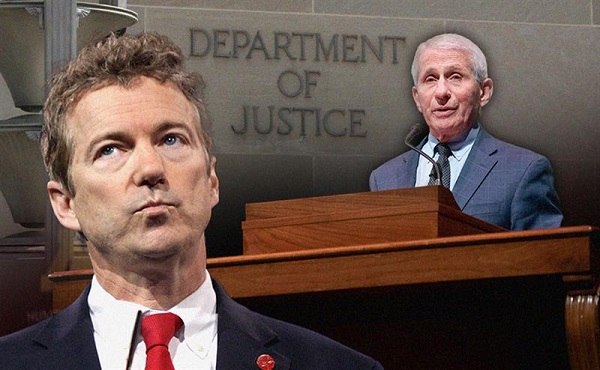
 COVID-192 days ago
COVID-192 days agoSen. Rand Paul: ‘I am officially re-referring Dr. Fauci to the DOJ’
-
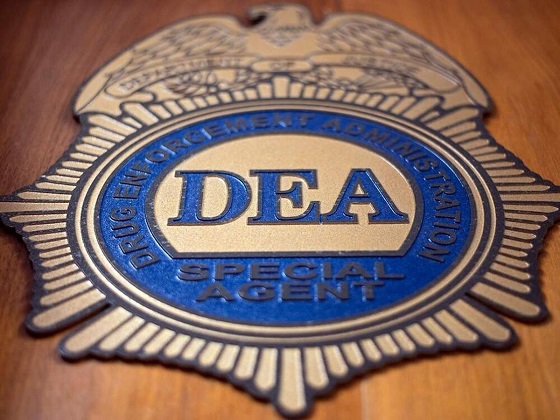
 Crime2 days ago
Crime2 days agoDEA Busts Canadian Narco Whose Chinese Supplier Promised to Ship 100 Kilos of Fentanyl Precursors per Month From Vancouver to Los Angeles
-
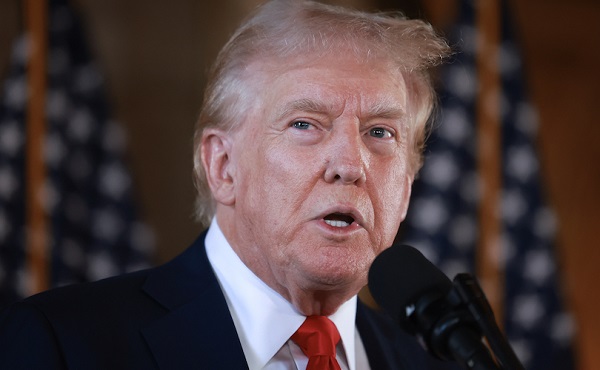
 Education2 days ago
Education2 days agoTrump praises Supreme Court decision to allow dismantling of Department of Education
-
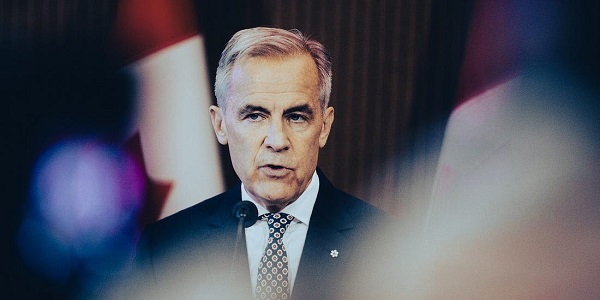
 National1 day ago
National1 day agoDemocracy Watch Blows the Whistle on Carney’s Ethics Sham
-

 Business2 days ago
Business2 days agoCanada must address its birth tourism problem
-

 Business2 days ago
Business2 days agoConservatives demand probe into Liberal vaccine injury program’s $50m mismanagement
-
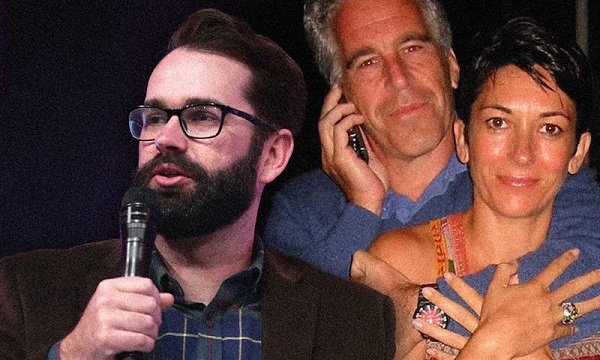
 International1 day ago
International1 day agoMatt Walsh slams Trump administration’s move to bury Epstein sex trafficking scandal





